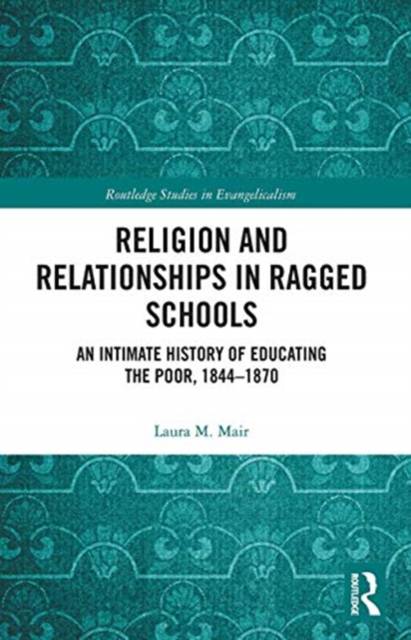
- Retrait gratuit dans votre magasin Club
- 7.000.000 titres dans notre catalogue
- Payer en toute sécurité
- Toujours un magasin près de chez vous
- Retrait gratuit dans votre magasin Club
- 7.000.0000 titres dans notre catalogue
- Payer en toute sécurité
- Toujours un magasin près de chez vous
Religion and Relationships in Ragged Schools
An Intimate History of Educating the Poor, 1844-1870
Laura M MairDescription
Focusing on the interaction between teachers and scholars, this book provides an intimate account of "ragged schools" that challenges existing scholarship on evangelical child-saving movements and Victorian philanthropy. With Lord Shaftesbury as their figurehead, these institutions provided a free education to impoverished children. The primary purpose of the schools, however, was the salvation of children's souls.
Using promotional literature and local school documents, this book contrasts the public portrayal of children and teachers with that found in practice. It draws upon evidence from schools in Scotland and England, giving insight into the achievements and challenges of individual institutions. An intimate account is constructed using the journals maintained by Martin Ware, the superintendent of a North London school, alongside a cache of letters that children sent him. This combination of personal and national perspectives adds nuance to the narratives often imposed upon historic philanthropic movements.
Investigating how children responded to the evangelistic messages and educational opportunities ragged schools offered, this book will be of keen interest to historians of education, emigration, religion, as well as of the nineteenth century more broadly.
Spécifications
Parties prenantes
- Auteur(s) :
- Editeur:
Contenu
- Nombre de pages :
- 240
- Langue:
- Anglais
- Collection :
Caractéristiques
- EAN:
- 9780367786755
- Date de parution :
- 31-03-21
- Format:
- Livre broché
- Format numérique:
- Trade paperback (VS)
- Dimensions :
- 156 mm x 234 mm
- Poids :
- 367 g

Les avis
Nous publions uniquement les avis qui respectent les conditions requises. Consultez nos conditions pour les avis.






